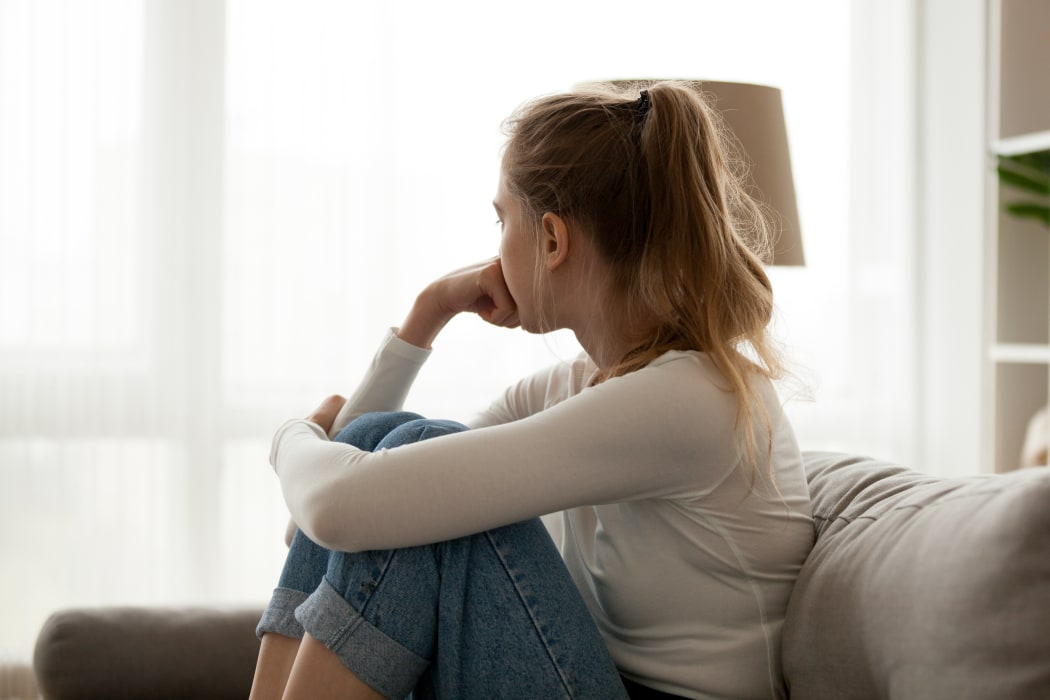Anxiety is in our body's early warning system. While evolution ensures there's no way to avoid it, neuroscience gives us a way to embrace it.
Wendy Suzuki, a professor of neuroscience and psychology at New York University, explains how anxiety can be good for us in her new book, Good Anxiety: Harnessing the Power of the Most Misunderstood Emotion.

Photo: 123RF
Dr Suzuki tells Jesse Mulligan that after the death of her father and younger brother, she began to see anxiety in a new light.
"I was plunged into grief, yet another very, very difficult emotion, and I felt like I was taking this master class, I didn't want to take a master class in difficult emotions.
"But I came out of it learning what those emotions can bring us - a perspective, an insight, information about what we value in our lives in the deepest way.
"That experience that I went through, like right in the middle of writing the book, completely changed the book into ... the appreciation of the gifts that anxiety bring us."
Her belief is that we should stop thinking about everyday anxiety as an illness or mental health problem, as the majority of people experience some form of it.
"I'm not saying that clinical anxiety is not something that is serious, that needs medical assistance.
"My book really deals with what I call everyday anxiety, which is on the lower spectrum of anxiety but still is draining, it feels like a weight around our neck.
"And in the end, this emotion is part of our beautiful array of emotions that humans have, and it serves a purpose."
Anxiety kickstarts the 'fight or flight' response in us and we should learn to harness that protective ability, she says.
"Anxiety is that feeling of fear or worry that typically comes with uncertain situations, so of course we're all living in an uncertain situation right now, and so what happens when anxiety is triggered by some uncertainty in our lives is we get this underlying physiological stress response.
"We're all familiar with those butterflies in the stomach, heart rate goes up, respiration goes up, blood is shunted from our digestive and reproductive systems to our muscles - this is the classic fight or flight response.
"I think we would be a completely different species if we were only happy all the time, nobody would have any ambition at all ... there has to be some unhappiness, some anger, some fire in our belly and a lot of that fire comes from anxiety.
"So that is kind of the core of the good part of anxiety, it is essential for our lives, it is an energy in our lives, and so a lot of the book is showing us how to harness that energy, but also to think about it in a different way. People are not used to thinking about anxiety as good."
But part of the problem is what was once 'protective' anxiety has become so heightened in today's world that we need to learn to tune it down, she says.
"People don't realise that there is an equal and opposite part of our nervous system to that fight or flight part of the nervous system, it is called the rest and digest part of our nervous system.
"I don't know why people don't talk about it, but it calms us down. It decreases our heart rate, it decreases our respiration and it shunts blood towards our digestive and reproductive organs.
"And so the best way to activate that is to consciously breathe deeply."
Dr Suzuki also lists in her book six 'superpowers' that anxiety gifts us with, including turning our worries and 'what if' theories into productivity by compiling a list of action.
"A lot of our worries have to do with our work, our relationships, the things that we are actively involved in in our lives.
"Those uncomfortable feelings are part of that fire that helps us get up, move, activate - that's the original intent [is to use it to] get up and fight or run away and so now it's translated into get up and do something, address those 'what ifs' and turn them into a 'to do'. "
Her own anxiety as a young student about asking questions openly in class led her to have greater empathy with her students as a teacher, she says.
"Everybody has that gift. Think about your own anxieties and then turn that externally and that becomes a particular superpower of empathy that you can give the world. And I don't know of anything that we need more as a world and as a society than more empathy."
Some other methods in her book she suggests to try and lower and make use of anxiety is to do new activities and positive self-tweeting.
"You can do it by yourself, you can do it with your kids, you can tweet to each other positive things at the beginning and at the end of the day ... to bring some positive energy into your life, to kind of counteract the anxiety that we all have, because there is a lot of uncertainty in this world."
Dr Suzuki acknowledges that there's no guarantee worry and fear won't resurface but making use of them and learning about brain plasticity is better than eliminating them.
"We are all capable of learning that, but you have to practice. You have to give it a try. You have to learn what works best for you."

